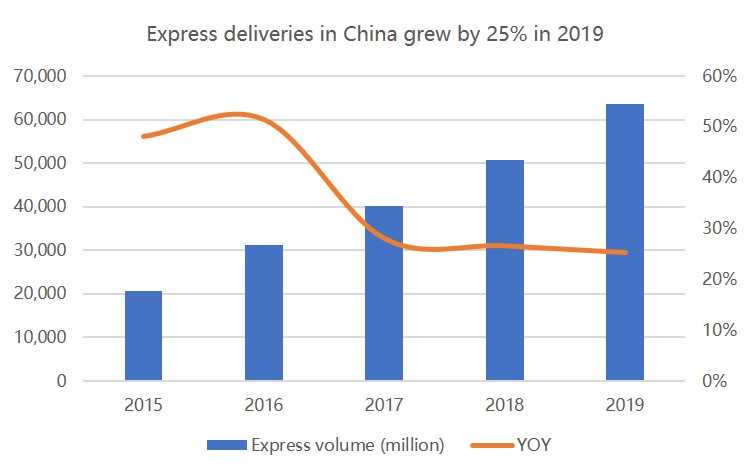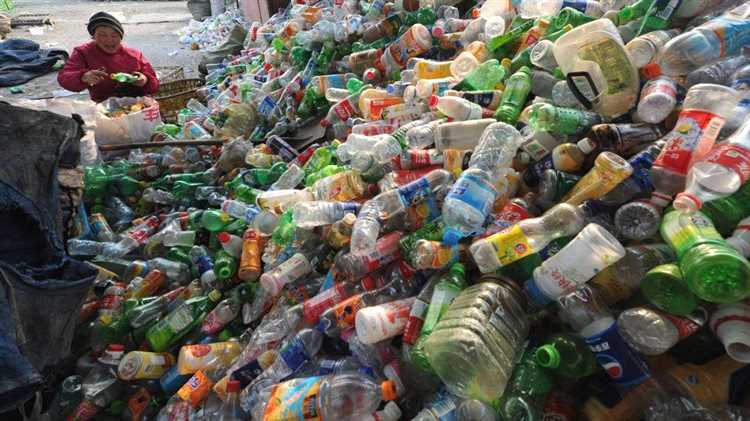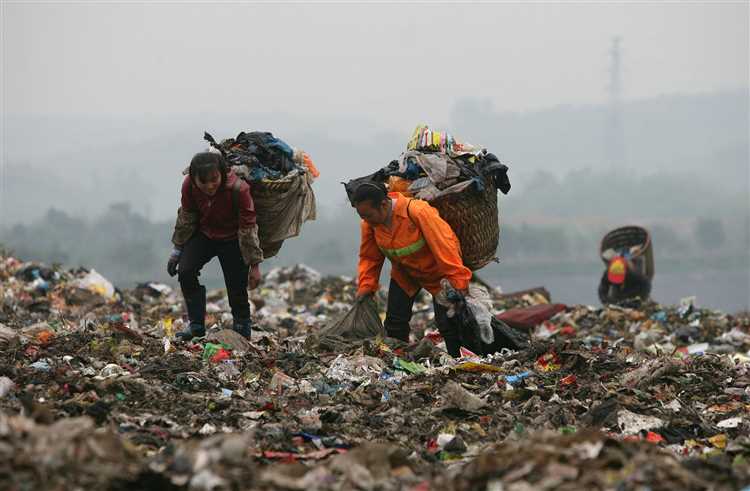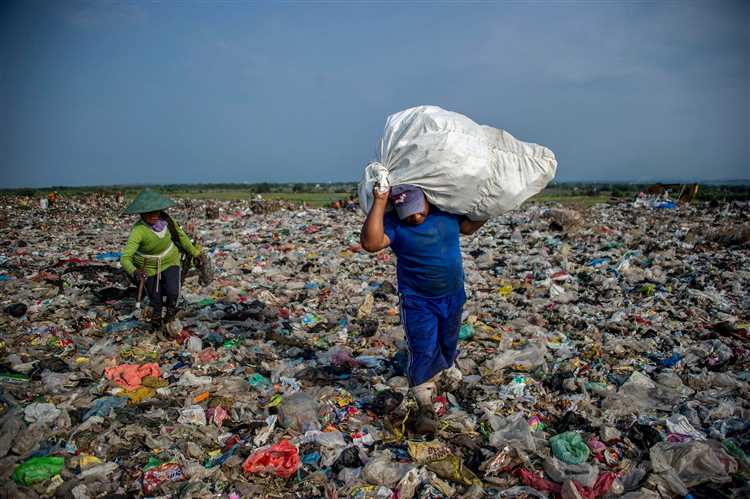
In recent years, the issue of plastic pollution has become a global concern. One of the major contributors to this problem is the excessive usage of plastic bags, which take hundreds of years to decompose. Among the countries with the highest plastic bag consumption, China often ranks at the top. The scale of China’s plastic bag usage is staggering and raises serious environmental and sustainability concerns.
China has a population of over 1.4 billion people, and the use of plastic bags is deeply ingrained in its culture. For many years, plastic bags were readily available and widely used in various industries and daily life. Whether it’s for grocery shopping, packaging, or transportation, plastic bags have become an essential part of Chinese society.
It is estimated that China consumes billions of plastic bags every year. According to a report by China’s National Development and Reform Commission, in 2019 alone, China used around 45 billion plastic bags. This number is mind-boggling, considering that it translates to roughly 120 million plastic bags used per day or around 8,300 plastic bags used every minute.
The excessive usage of plastic bags in China has had severe consequences on the environment. These bags often end up in landfills, polluting the soil and water. Furthermore, plastic bags are lightweight and easily carried by wind, which contributes to the problem of littering. The impact on wildlife is also significant, as animals often mistake plastic bags for food, leading to injuries or death.
Recognizing the severity of the issue, the Chinese government has implemented various measures to address the problem of plastic bag consumption. In 2008, China banned the production and distribution of ultra-thin plastic bags, encouraging the use of reusable bags instead. Furthermore, major cities in China have implemented plastic bag bans, aiming to reduce the usage of single-use plastic bags.
While progress has been made, the challenge of reducing plastic bag consumption in China remains. Efforts need to be intensified to raise awareness among the population, promote sustainable alternatives, and implement stricter regulations. Only by taking collective action can we hope to combat the plastic bag crisis in China and protect our environment for future generations.
- China’s Plastic Bag Usage
- The Growth of Plastic Bag Usage
- The Impact on the Environment
- Plastic Bags in China: How Many Are Used Every Year?
- The Environmental Impact of Plastic Bag Usage in China
- Pollution
- Resource Depletion
- Alternatives and Solutions
- Government Policies and Initiatives to Curb Plastic Bag Usage
- The Role of Recycling in Reducing Plastic Bag Waste
- Consumer Behavior and Plastic Bag Usage in China
- Alternative Solutions to Plastic Bags: What China is Doing
- Q&A:
- How many plastic bags does China use?
- Why does China use so many plastic bags?
- What are the environmental consequences of China’s plastic bag usage?
- Are there any efforts to reduce plastic bag usage in China?
- What are the alternatives to plastic bags in China?
China’s Plastic Bag Usage
China is known for its large population and rapid economic development. Unfortunately, this development has come at a cost to the environment, particularly when it comes to plastic bag usage.
The Growth of Plastic Bag Usage
In the past few decades, China has experienced a significant increase in plastic bag usage. This is partly due to the country’s booming retail industry and the convenience that plastic bags offer to consumers. However, this convenience comes at a great cost to the environment.
The widespread use of plastic bags in China has led to a number of environmental issues. For one, plastic bags are not easily biodegradable, meaning they can remain in the environment for hundreds of years. This has resulted in the accumulation of plastic waste in landfills, rivers, and oceans.
The Impact on the Environment
The environmental impact of China’s plastic bag usage is undeniable. Not only do plastic bags contribute to land and water pollution, they also pose a threat to wildlife. Marine animals often mistake plastic bags for food and can die from ingesting or becoming entangled in them.
Awareness of the detrimental effects of plastic bag usage has led to increased efforts to reduce consumption. In 2008, China implemented a nationwide ban on the production and use of ultra-thin plastic bags. This ban has helped to reduce plastic bag usage, but more still needs to be done to combat the problem.
In conclusion, China’s plastic bag usage has grown exponentially in recent years, posing a significant threat to the environment. While efforts have been made to reduce consumption, more needs to be done to address this issue and find sustainable alternatives to plastic bags.
Plastic Bags in China: How Many Are Used Every Year?
China is known for its high consumption of plastic bags, with a vast number of them being used on a yearly basis. The country’s rapid economic growth and urbanization have contributed to the significant rise in plastic bag usage. According to statistics, China uses an estimated 60 billion plastic bags each year, making it one of the largest consumers of plastic bags in the world.
The widespread use of plastic bags in China can be attributed to several factors. Firstly, plastic bags are cheap to produce and purchase, making them a convenient choice for both businesses and consumers. Additionally, the convenience and versatility of plastic bags make them a popular option for packaging and carrying various goods.
However, the excessive use of plastic bags in China has raised concerns about its environmental impact. Plastic bags are non-biodegradable, which means they persist in the environment for hundreds of years, causing pollution and posing a threat to wildlife. To address this issue, the Chinese government has implemented various regulations and initiatives to reduce plastic bag usage.
One notable measure is the nationwide ban on free plastic bags in major retail stores, which was implemented in 2008. This ban requires customers to pay for plastic bags or use alternative eco-friendly options such as reusable bags. The introduction of this policy has significantly reduced plastic bag consumption in China.
Furthermore, local governments and communities have also implemented their own measures to reduce plastic bag usage. Many cities have imposed additional taxes on plastic bags or restricted their production and sale. In some areas, reusable bags have been widely promoted and distributed as a sustainable alternative.
While these efforts have been effective in reducing plastic bag consumption, there is still a long way to go in completely solving the issue. Education and awareness campaigns play a crucial role in encouraging individuals and businesses to adopt more sustainable practices and alternatives to plastic bags.
In conclusion, China’s high consumption of plastic bags poses significant environmental challenges. The country has implemented various measures to address this issue, including bans, taxes, and promotion of reusable bags. However, it requires continued efforts from both the government and the public to reduce plastic bag usage and create a more sustainable future.
The Environmental Impact of Plastic Bag Usage in China
China is known for its massive consumption of plastic bags, with estimates suggesting that the country uses billions of plastic bags each year. This widespread usage has significant environmental consequences that are worth considering.
Pollution
One of the most significant environmental impacts of plastic bag usage in China is pollution. Plastic bags are not biodegradable, meaning that once they are discarded, they can persist in the environment for hundreds of years. In China, it is common to see plastic bags littering streets, parks, and waterways, leading to pollution and damaging ecosystems.
In addition to the visible pollution, plastic bags can also break down into microplastics, which can be even more damaging to the environment. Microplastics are tiny plastic particles that can be ingested by wildlife and eventually make their way up the food chain, potentially impacting human health.
Resource Depletion
The production of plastic bags requires significant amounts of natural resources, including fossil fuels and water. China’s high demand for plastic bags results in the depletion of these resources, contributing to environmental degradation.
Furthermore, the disposal of plastic bags requires energy-intensive processes, such as incineration or landfilling. These processes emit greenhouse gases and contribute to climate change, further exacerbating the environmental impact of plastic bag usage in China.
Alternatives and Solutions

To mitigate the environmental impact of plastic bag usage in China, various alternatives and solutions have been proposed and implemented. One solution is the promotion of reusable bags, encouraging people to bring their own bags when shopping. Some cities in China have implemented plastic bag bans or levies to reduce plastic bag consumption.
Furthermore, promoting education and awareness about the environmental consequences of plastic bags can help change consumer behavior and reduce usage. Investing in research and development of biodegradable or compostable bag alternatives can also be a step towards minimizing the environmental impact.
- Encouraging the use of sustainable materials
- Implementing recycling programs
- Supporting waste reduction initiatives
By implementing these alternatives and solutions, China can significantly reduce its plastic bag usage and minimize its environmental impact in the long run.
Government Policies and Initiatives to Curb Plastic Bag Usage
Recognizing the environmental hazards posed by excessive plastic bag usage, the Chinese government has implemented several policies and initiatives aimed at curbing plastic bag consumption. These measures have gained significant traction and resulted in a considerable reduction in plastic bag usage in recent years.
One of the most impactful policies implemented by the government was the nationwide ban on free plastic bags in 2008. Under this regulation, retailers were no longer allowed to provide free plastic bags to customers, encouraging individuals to bring their own reusable bags. This policy shift had an immediate and significant impact on reducing plastic bag consumption in China.
In addition to the ban on free plastic bags, the Chinese government has also imposed stricter regulations on the production and distribution of plastic bags. Producers are required to meet certain environmental standards in terms of the materials used and the production methods employed. By regulating the supply, the government aims to reduce the availability and usage of plastic bags.
The Chinese government has also launched public awareness campaigns to educate the population on the harmful effects of plastic bags and promote more sustainable alternatives. These campaigns utilize various media channels, such as television, social media, and educational institutions, to disseminate information and encourage behavior change. By increasing awareness and understanding, the government hopes to encourage individuals to adopt eco-friendly practices, including reducing plastic bag usage.
Furthermore, the Chinese government has actively promoted the use of alternative packaging materials, such as biodegradable bags, to replace traditional plastic bags. This includes providing incentives and subsidies to encourage businesses to switch to more environmentally friendly packaging options. By supporting the development and use of sustainable alternatives, the government aims to reduce the demand for plastic bags and promote a circular economy.
In conclusion, the Chinese government has implemented several policies and initiatives to curb plastic bag usage. These measures include the nationwide ban on free plastic bags, stricter regulations on production and distribution, public awareness campaigns, and promotion of alternative packaging materials. Through these efforts, China has made significant progress in reducing plastic bag consumption and mitigating the environmental impact associated with excessive plastic bag usage.
The Role of Recycling in Reducing Plastic Bag Waste
Recycling plays a vital role in reducing plastic bag waste in China. With the country being one of the largest consumers of plastic bags in the world, it is important to find ways to manage and repurpose these bags to prevent them from ending up in landfills or polluting the environment.
By recycling plastic bags, the material can be diverted from the waste stream and turned into new products, reducing the need for virgin plastic production. This significantly helps to conserve resources and reduce greenhouse gas emissions associated with the production of plastics.
Plastic bags can be recycled by taking them to designated recycling facilities or drop-off centers, where they are sorted, cleaned, and processed. The bags are then transformed into pellets, which can be used as a raw material in the production of new plastic products.
Moreover, recycling plastic bags also creates economic opportunities. The process of collecting and recycling bags can provide employment opportunities for individuals involved in the waste management industry. Additionally, the recycled material can be used in manufacturing various products, which contributes to a more sustainable and circular economy.
However, it is important to note that recycling alone is not enough to solve the plastic bag waste problem. While recycling helps to reduce the environmental impact of plastic bags, it is equally important to focus on reducing their consumption in the first place. This can be achieved through the promotion of reusable bags and the implementation of policies that discourage single-use plastic bag usage.
In conclusion, recycling plays a crucial role in reducing plastic bag waste in China. By diverting plastic bags from the waste stream and transforming them into new products, recycling helps to conserve resources, reduce greenhouse gas emissions, and create economic opportunities. However, it is important to take a holistic approach by also addressing the issue of plastic bag consumption through the promotion of reusable alternatives and the implementation of effective policies.
Consumer Behavior and Plastic Bag Usage in China

In recent years, there has been growing concern about the excessive use of plastic bags and its impact on the environment. China, being the most populous country in the world, is also one of the largest consumers of plastic bags. The increasing disposable income and changing lifestyles in China have led to a significant rise in the demand for plastic bags.
Consumer behavior plays a crucial role in the usage of plastic bags in China. Many Chinese consumers have developed a habit of using plastic bags for various reasons. Firstly, plastic bags are seen as convenient and practical for carrying groceries and other items. Additionally, Chinese consumers often reuse plastic bags for household purposes such as storing and organizing items.
Moreover, cultural factors also influence plastic bag usage in China. Giving customers a plastic bag is a common practice in Chinese retail stores and supermarkets as a sign of respect and good service. Customers may see it as a token of appreciation and feel obliged to accept the plastic bag even if they don’t necessarily need it.
However, there is a growing awareness about the environmental impact of plastic bag usage in China. The government has implemented various initiatives to reduce plastic bag consumption, such as imposing fees on plastic bags in supermarkets and promoting the use of reusable bags. Many consumers are starting to form new habits and bring their own bags when shopping to reduce their plastic waste.
In conclusion, consumer behavior plays a significant role in plastic bag usage in China. While there is still a strong reliance on plastic bags due to their convenience and cultural norms, there is also a growing awareness and effort to reduce plastic bag consumption and promote more sustainable alternatives.
Alternative Solutions to Plastic Bags: What China is Doing

China, being one of the largest producers and consumers of plastic bags in the world, has recognized the need for alternative solutions to reduce its plastic waste. In recent years, the Chinese government has implemented several initiatives to address this issue and promote the use of eco-friendly alternatives.
One of the key measures taken by China is the nationwide ban on free plastic bags in supermarkets, shopping malls, and markets. This ban, which was introduced in 2008, has significantly reduced the consumption of plastic bags and encouraged people to bring their own reusable bags when shopping. In addition, the government has imposed strict fines and penalties on businesses that fail to comply with this ban.
Another approach that China has adopted is the promotion of biodegradable and compostable bags. These bags are made from natural materials such as cornstarch, vegetable oil, and wheat straw, making them safe for the environment. The government has provided incentives and subsidies to encourage the production and use of these bags, and they are now widely available in many stores across the country.
Furthermore, China has been investing in research and development to find innovative alternatives to plastic bags. One promising solution is the development of bags made from recycled plastic or other sustainable materials. These bags are durable, reusable, and have a significantly lower environmental impact compared to traditional plastic bags.
In addition to these initiatives, China has also been focusing on creating awareness and educating the public about the importance of reducing plastic waste. Public campaigns have been launched to encourage people to bring their own bags, use reusable containers, and recycle plastic products. Schools and educational institutions are also playing a vital role in educating students about the environmental impact of plastic bags and promoting sustainable practices.
Overall, China’s efforts to find alternative solutions to plastic bags have been commendable. The combination of a ban on free plastic bags, promotion of biodegradable bags, investment in research, and public awareness campaigns has helped reduce plastic waste and promote a greener lifestyle. However, there is still more work to be done, and it is important for individuals, businesses, and governments to come together to find innovative solutions and reduce the reliance on plastic bags.
Q&A:
How many plastic bags does China use?
China is estimated to use over 80 billion plastic bags each year. This accounts for approximately one-third of the global plastic bag consumption.
Why does China use so many plastic bags?
There are several reasons why China uses a large number of plastic bags. Firstly, plastic bags are cheap and convenient for both businesses and consumers. Secondly, there is a lack of awareness and education regarding the environmental impact of plastic bags. Lastly, China has a vast population which contributes to the high demand for plastic bags.
What are the environmental consequences of China’s plastic bag usage?
China’s plastic bag usage has severe environmental consequences. The majority of plastic bags end up in landfills or as litter, polluting waterways and causing harm to marine life. Plastic bags are non-biodegradable and can take hundreds of years to break down, contributing to the accumulation of plastic waste in the environment.
Are there any efforts to reduce plastic bag usage in China?
Yes, there have been efforts to reduce plastic bag usage in China. In 2008, China enacted a nationwide ban on free plastic bags in supermarkets, shops, and markets. Additionally, some cities have implemented stricter regulations on plastic bag usage and have promoted the use of reusable bags. However, more awareness and initiatives are needed to further reduce plastic bag consumption in China.
What are the alternatives to plastic bags in China?
There are several alternatives to plastic bags in China. Reusable bags made from fabric or other durable materials are a popular choice. Some businesses offer discounts or incentives for customers who bring their own bags. Additionally, biodegradable or compostable bags made from plant-based materials are being explored as more sustainable alternatives to traditional plastic bags.